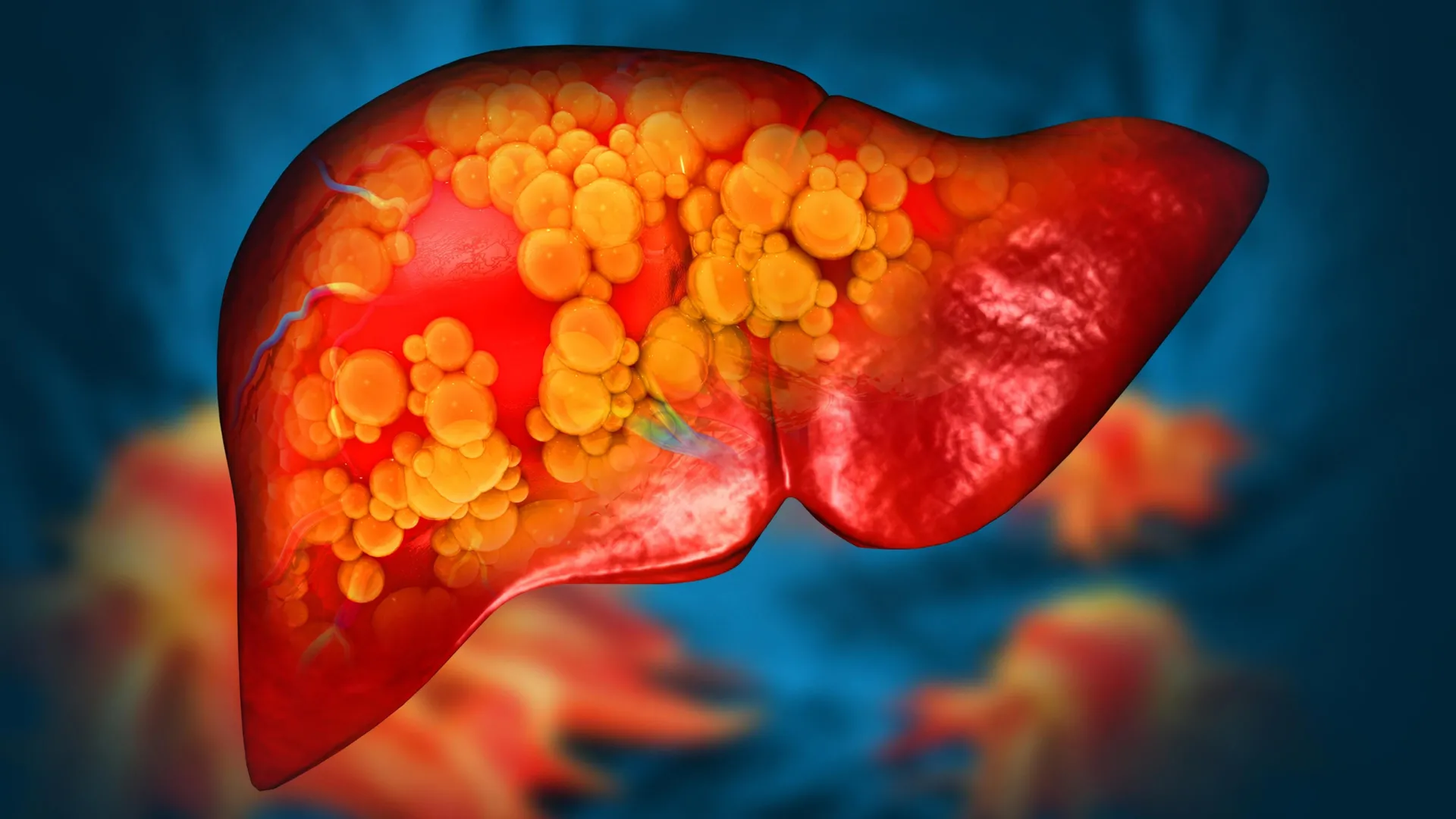New drug could be first to stop deadly fatty liver disease
New investigational treatment interrupts disease at its source, offering hope for millions with life-threatening liver condition linked to obesity and diabetes.
- Date:
- September 16, 2025
- Source:
- University of California - San Diego
- Summary:
- Scientists at UC San Diego have identified a new drug, ION224, that could transform the treatment of MASH, a dangerous form of fatty liver disease tied to obesity and diabetes. By blocking a key liver enzyme, the drug reduces fat and inflammation, halting the root causes of liver damage. In a year-long clinical trial, patients showed major improvements without serious side effects, offering hope to millions affected worldwide.
- Share:

Researchers at University of California San Diego School of Medicine have identified a new investigational drug that shows promise in treating metabolic dysfunction-associated steatohepatitis (MASH), a serious form of fatty liver disease linked to obesity and type 2 diabetes that can lead to cirrhosis, liver failure, and even liver cancer.
The study, published in the August 23, 2025 online edition of The Lancet, found that the medication, ION224, targets a liver enzyme called DGAT2, which plays a key role in how the liver produces and stores fat. By blocking this enzyme, the drug helps reduce fat buildup and inflammation, two major drivers of liver damage in MASH.
"This study marks a pivotal advance in the fight against MASH," said Rohit Loomba, MD, principal investigator of the study and chief of the Division of Gastroenterology and Hepatology at UC San Diego School of Medicine. "By blocking DGAT2, we're interrupting the disease process at its root cause, stopping fat accumulation and inflammation right in the liver."
The multicenter, Phase IIb clinical trial involved 160 adults with MASH and early to moderate fibrosis across the United States. Participants received monthly injections of the drug at different doses or a placebo over the course of one year. At the highest dose, 60% showed notable improvements in their liver health compared to the placebo group. These benefits occurred regardless of weight change, suggesting the drug could be used alongside other therapies. The medicine showed no serious side effects linked to the treatment.
MASH, formally known as nonalcoholic steatohepatitis (NASH), affects people with metabolic conditions like obesity and type 2 diabetes. It is often called a "silent" disease because it can progress for years without symptoms.
More than 100 million people have some form of fatty liver disease in the U.S. and as many as 1 in 4 adults worldwide may be affected, according to the Centers for Disease Control and Prevention. If left untreated, MASH can progress to liver failure and often may require a transplant.
"This is the first drug of its kind to show real biological impact in MASH," Loomba said. "If these findings are confirmed in Phase III trials, we may finally be able to offer patients a targeted therapy that halts and potentially reverses liver damage before it progresses to life-threatening stages."
Loomba, who is also director of the metabolic-dysfunction associated steatotic liver disease (MASLD) research center at UC San Diego School of Medicine, and a gastroenterologist and hepatologist at UC San Diego Health, adds that for patients and families affected by this serious condition, these results bring new hope for better care and outcomes. He emphasizes that early intervention and targeted therapies may also help reduce the burden on health care systems by preventing costly and complex liver disease down the line.
Next steps include a larger clinical trial to move closer to making this treatment widely available.
Co-authors of the study include Erin Morgan, Keyvan Yousefi, Dan Li, Richard Geary, Sanjay Bhanot, all from Ionis Pharmaceuticals, and Naim Alkhouri, Arizona Liver Health.
Funding for this research came from Ionis Pharmaceuticals (ION224-CS2).
Story Source:
Materials provided by University of California - San Diego. Note: Content may be edited for style and length.
Journal Reference:
- Rohit Loomba, Erin Morgan, Keyvan Yousefi, Dan Li, Richard Geary, Sanjay Bhanot, Naim Alkhouri. Antisense oligonucleotide DGAT-2 inhibitor, ION224, for metabolic dysfunction-associated steatohepatitis (ION224-CS2): results of a 51-week, multicentre, randomised, double-blind, placebo-controlled, phase 2 trial. The Lancet, 2025; 406 (10505): 821 DOI: 10.1016/S0140-6736(25)00979-1
Cite This Page: